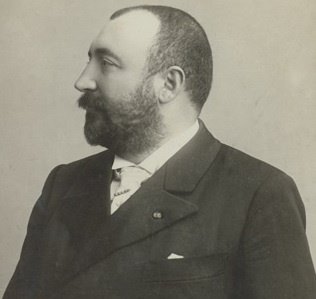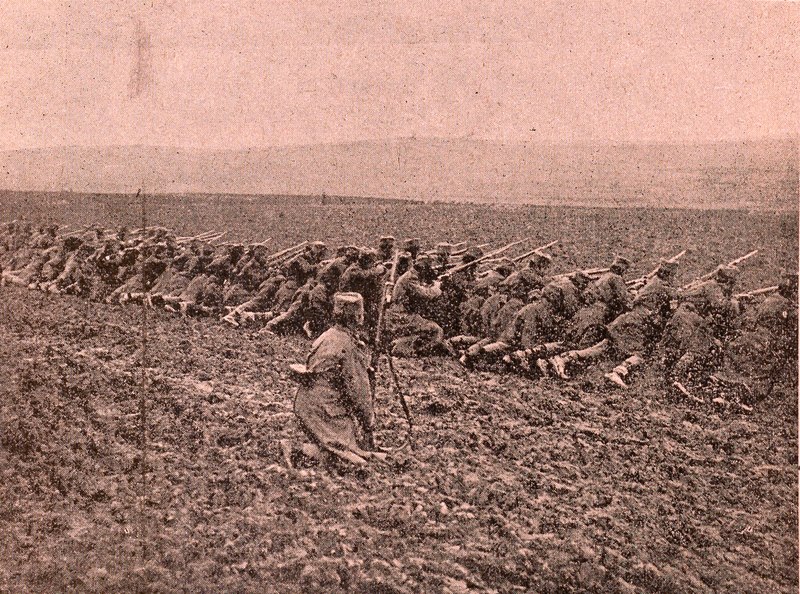OUR BLOG
MILOVAN MILOVANOVIC
SERBIAN DIPLOMATS
SERBIAN DIPLOMATS

Milovan Milovanovic Balacko was the greatest Serbian diplomat at the end of the 19th and the beginning of the 20th century, a Serbian politician and theorist of the state and law. At the dawn of the 20th century, when the Balkan states were in the phase of final liberation from the centuries of Ottoman rule, Milovanovic, at the head of Serbian diplomacy, was a key factor in the creation of the Balkan Alliance. He concluded an alliance with Bulgaria which enabled the creation of the Balkan Alliance against the Ottoman Empire. He participated in drafting the Constitution of Serbia from 1888. As one of the most prominent leaders of the People’s Radical Party and the Prime Minister of the Royal Government, he was the Minister of Economy and Finance and the Ambassador of Serbia to Rome.
He was born in 1863 in a respectable family of lawyers. His father, Djordje Milovanovic, was a famous judge, advisor and Minister of Justice.
As one of the best students, he graduated law in Paris, where his doctoral dissertation was awarded gold medal of the University of Paris.
As a professor of state law at the Great School in Belgrade and the best connoisseur of foreign legislation, Milovanovic participated in the preparation and drafting of the Constitution of Serbia from 1888, one of the most liberal in Europe at the time.
At the time of chronic political instability and permanent parliamentary crisis, as well as frequent changes of government, Milovanovic lost the positions he held several times and undertook important political roles.
He was the head of the Ministry of Foreign Affairs, and when the radical government expelled Queen Natalija Obrenovic from the country, he defended such a decision, proving that it was not against the constitution, but he lost popularity among the people.
He remained Minister of Foreign Affairs in different governments from 1908 until his death in 1912. Contrary to the opposition of most radicals, he intended to improve relations with Austria. This was the reason why he went to Vienna immediately before the Annexation Crisis, but the Austro-Hungarian minister did not wish to negotiate.
Annexation crisis
Following the news of the annexation of Bosnia and Herzegovina by Austro-Hungarian Empire, the public in Serbia demanded that Bosnia and Herzegovina should be liberated by war.
Such an attitude did not go in line with the Milovanovic’s diplomatic plans, because he believed that the war would end in Serbian defeat and threat to Serbian sovereignty.
Therefore, he announced the protest of the Serbian government on the news of the annexation, in which it was stated that Serbia should receive compensation for the lost Bosnia and Herzegovina. Serbian public interpreted this as a trade in national ideals, and the outrage was so great that angry protesters smashed windows at the ministry.
Believing that Serbia would not be able to get Russia’s military aid in a potential conflict, he proposed a conference of great powers, in order to persuade Austria to make certain concessions to Serbia. But unlike Russia, France and England, Austria and Germany were against his proposal.
The annexation crisis ended with the Berlin Agreement of 1909, although it was considered an introduction to the First World War.

Diplomacy
The turning point in Milovanovic’s career was his decision to leave domestic politics and engage in foreign affairs. At the time when he was the chief adviser to the Minister of Foreign Affairs Jovan Zujovic, at the end of 1902, he was appointed ambassador to Rome, where he spent 6 years. He was an adamant protester of the imperialist Austro-Hungarian policy.
He achieved a great personal and diplomatic triumph at the Hague Peace Conference in 1907, when he drew the attention of the most eminent lawyers of that time with his knowledge and rhetoric. He was elected vice-president of one of the four commissions and a member of the Permanent Election Court in the Hague, which was the first time in the history of Serbia that its representative took such a high position in an important international organization.

Agreement with Bulgaria
Milovanovic was for a year at the head of the government which concluded an alliance with Bulgaria in 1912. Influential authors believe that this agreement, long prepared far from the public eye and secretly signed in his house, was the crown of his diplomatic career. Together with the Bulgarian Prime Minister Ivan Geshov, he was the creator of the alliance without which there would be no success in the final formation of the Balkan Alliance or victory over the Ottoman Empire in the First Balkan War.
One of the best Serbian diplomats
He died a few months before the outbreak of the First Balkan War. Slobodan Jovanovic described him as one of the best Serbian diplomats: “He always had Serbian interests in mind, without emphasizing them too much, but rather connecting them to some higher and more general interests.”
He was awarded the High Russian Order of the White Eagle with diamonds.







 2018
2018